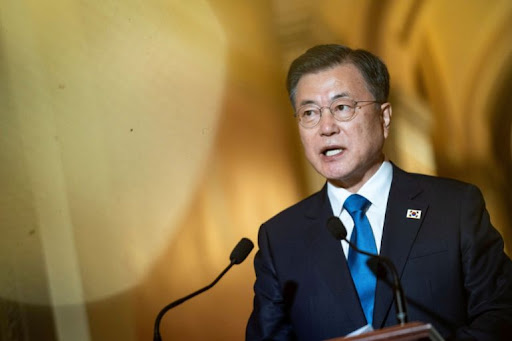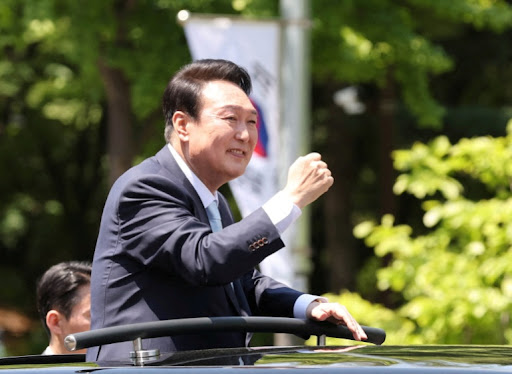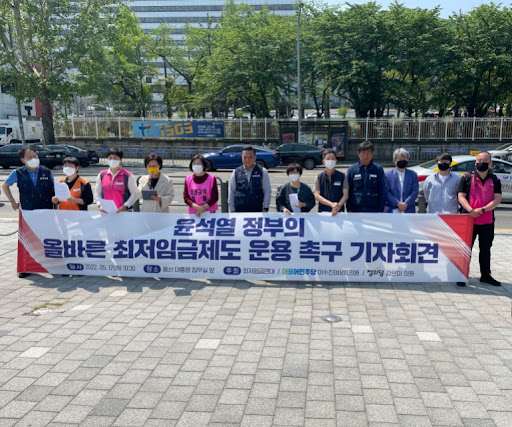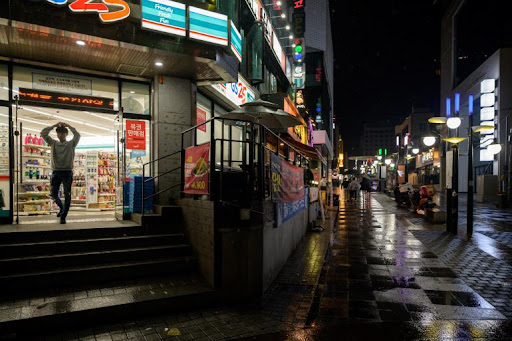Yoon Suk-yeol has promised to create measures that provide businesses more leeway to operate without heavy restriction.
South Korea, Seoul – Choi Myung-gon works the overnight shift as a cashier at a convenience shop in southern Seoul, counting up transactions and refilling inventory. He tries to study during the extended periods when there are no customers.
Choi aims to take South Korea’s civil service exam this year, a highly competitive exam that thousands of people study for in the hopes of landing permanent government posts. He thinks that a high score will be his ticket out of low-wage labor, but because to his unpredictable work schedule and long hours working on his feet, he often finds it difficult to focus on his studies.
South Koreans are used to working long hours, and with sluggish development and rising living costs in Asia’s fourth-largest economy, many are struggling to get ahead.
While workers like Choi have benefited from huge increases in the minimum wage in recent years, many are still struggling to make ends meet.
As he spoke with AlJazeera, Choi said “Over the past five years, I don’t think the minimum wage increases improved workers’ daily lives very much,. Of course, it’s better having a higher wage, but with housing being more expensive and food being more expensive, things have just gotten harder.”

Moon Jae-in, the former left-wing president, came office in 2017 promising to reduce inequality by raising the wages of low-wage workers. Moon, who left office in early May when his tenure expired, believed that hiking the minimum wage would start a virtuous cycle in which workers with extra money would spend more, boosting consumption and creating more jobs.
The current minimum wage in South Korea is 9,160 won ($7.25) per hour. During Moon’s first full year in government, the minimum wage increased by 16.4 percent, the greatest annual increase in history. The increase the following year was more than 10%, followed by increases of 1-2 percentage points and 5.05 percent last year.
The recent inauguration of Yoon Suk-yeol, a political newcomer who represents the conservative People Power Party, has generated concerns that the recent substantial rises may not be sustained.
Yoon’s office has stated that he will neither take an official stance or participate in this year’s minimum wage negotiations, which began earlier this month.
Yoon, a former chief prosecutor who campaigned on reviving a market-driven economy, has committed to enact laws that offer businesses greater leeway to operate without undue regulation.
Employers’ groups have criticized recent minimum wage increases, claiming that small businesses like convenience stores and restaurants cannot afford to pay their employees more. At the same time, workers like Choi think the raises are insufficient in light of rising prices. Consumer inflation in South Korea reached 4.8 percent in April, the highest level since 2008.

Labor and business representatives appear to be heading for contentious negotiations, with unions insisting that a further increase in the minimum wage is required to keep up with rising costs, while employers argue that many small businesses have yet to recover from the damage caused by COVID-19 and cannot handle any additional burden.
Earlier this month, Lee Tae-hee, an official with the Korea Federation of SMEs, was quoted in local media as saying that small businesses were already concerned about “simply being able to pay this month’s salary.”
The South Korean economy’s structure, in which a limited number of corporate conglomerates dominate and a large portion of the population is employed by mom-and-pop businesses, makes wage negotiations a serious issue.
Like Choi Pae-kun, a professor of economics at Konkuk University in Seoul, told Al Jazeera.“South Korea has a lot of small businesses that rely on low-wage workers who work for long hours, and the rapid increase of the minimum wage was inevitably a burden on them.”
Economists have also highlighted that there are alternatives, such as tax credits, to help struggling workers without putting expenses on small business owners, many of whom are struggling to make ends meet.
According to Choi, “In order to strengthen the incomes of low-income households, it is necessary to strengthen transfer payments from the government while adjusting the speed of the minimum wage increase.”

Employers have also advocated in favor of distinguishing the minimum pay by industry, which would be an unprecedented step since South Korea implemented a minimum wage in 1988. Instead of a national standard for all workers, the plans would allow select low-margin enterprises, such as restaurants and motels, to pay less.
Labour groups and politicians on the left have reacted angrily to the proposed move.
Kang Eun-mi, a legislator from the left-wing Justice Party, called on the government to recognize the minimum wage’s role in defending the living conditions of society’s most disadvantaged at a recent press conference outside the presidential office in Seoul.
Differentiating by sector will disproportionately hurt women, youngsters, and temporary employees, according to Kang, who urged participants in this year’s talks to keep vulnerable groups in mind.
“We must work to ensure that the purpose of the minimum wage is not harmed.”






